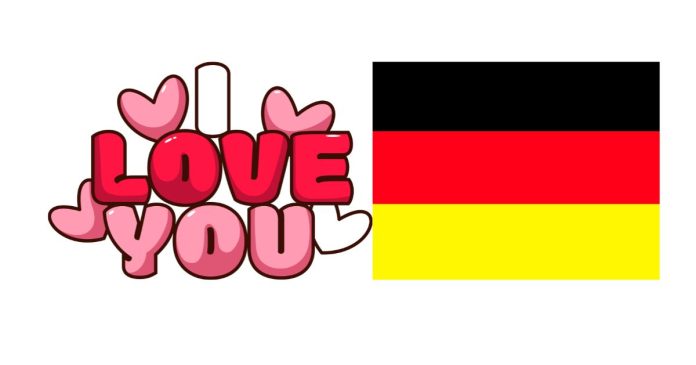Expressing love is universal, but every language has its unique way of communicating affection. In German, just like in English, there are various ways to say “I love you,” depending on the context, your relationship with the person, and how deeply you want to express your emotions. Whether you’re planning to confess your feelings to a special someone or simply want to know how to say “I love you” in German, this blog post will guide you through the different expressions.
1. “Ich liebe dich”
Literal translation: I love you
Context:
This is the most direct and common way to say “I love you” in German. It’s equivalent to the English phrase and can be used in romantic relationships, close family bonds, or even to express deep affection towards a friend.
Why it’s special:
“Ich liebe dich” is profound, straightforward, and powerful. It carries a strong emotional weight, and in most cases, it’s used in serious or long-term relationships. It’s reserved for those truly meaningful connections.
2. “Ich hab dich lieb”
Literal translation: I have love for you (translated loosely as “I care about you” or “I’m fond of you”)
Context:
While it’s similar to “Ich liebe dich,” “Ich hab dich lieb” is slightly less intense and can be used for close friends, family members, or people you care about in a non-romantic way. It’s often said between parents and children or between close friends.
Why it’s special:
This phrase emphasizes fondness and affection without the deep romantic undertones of “Ich liebe dich.” It’s a sweet expression that is more casual and can be used in everyday situations.
3. “Du bist mein Ein und Alles”
Literal translation: You are my one and everything
Context:
This phrase is an even more intense and poetic way to say “I love you.” It translates to “You are my everything,” often used by someone who wants to express deep devotion or romantic commitment.
Why it’s special:
This expression is very romantic and grand. It is typically used in long-term relationships or marriages, conveying the feeling that the person means the world to you. It’s not an everyday phrase and carries a lot of emotional depth.
4. “Ich verehre dich”
Literal translation: I adore you
Context:
This phrase is typically used in more formal situations or when you want to express admiration and deep affection for someone. It’s not as common in everyday conversation, but it can be used to show a sense of admiration, reverence, or deep respect for someone.
Why it’s special:
It conveys admiration in a more respectful or slightly more distant manner, often used when someone has great affection for another but is not necessarily in a romantic relationship.
5. “Ich bin in dich verliebt”
Literal translation: I am in love with you
Context:
This phrase is specifically used to convey the feeling of being romantically in love with someone. It’s often used early in relationships or when someone wants to make their romantic feelings known.
Why it’s special:
It’s slightly more specific than “Ich liebe dich,” as it emphasizes the feeling of being in love with the person rather than just a general sense of love. It’s commonly used during the stages of a romantic relationship when love is growing.
6. “Ich denke an dich”
Literal translation: I’m thinking of you
Context:
While not a direct translation of “I love you,” this phrase is often used as a tender way of showing affection or care for someone, especially when they’re far away.
Why it’s special:
This phrase doesn’t just express love; it shows emotional attachment and concern. Saying “Ich denke an dich” is a warm, thoughtful way of showing someone they are always on your mind.
7. “Du bist alles für mich”
Literal translation: You are everything to me
Context:
This is another way of expressing deep love and affection, often used in romantic contexts. It can be similar to “Ich liebe dich,” but it also conveys that the person is central to your life.
Why it’s special:
This phrase shows that the person holds a central, irreplaceable role in your life, and it’s often said in very meaningful, serious relationships.
Expressing love in another language can be a beautiful and meaningful experience, and in German, there are several ways to say “I love you,” each with its own nuances. Whether you’re just beginning a romance and want to say “Ich bin in dich verliebt” or you’ve been with someone for years and want to express your devotion with “Du bist mein Ein und Alles,” the German language offers many ways to show affection.
So, which phrase will you choose to express your feelings? No matter which one resonates with you, it’s sure to be meaningful in the right context. Remember that the power of love transcends language, but expressing it in the language of the person you care about can make the sentiment even more special.


